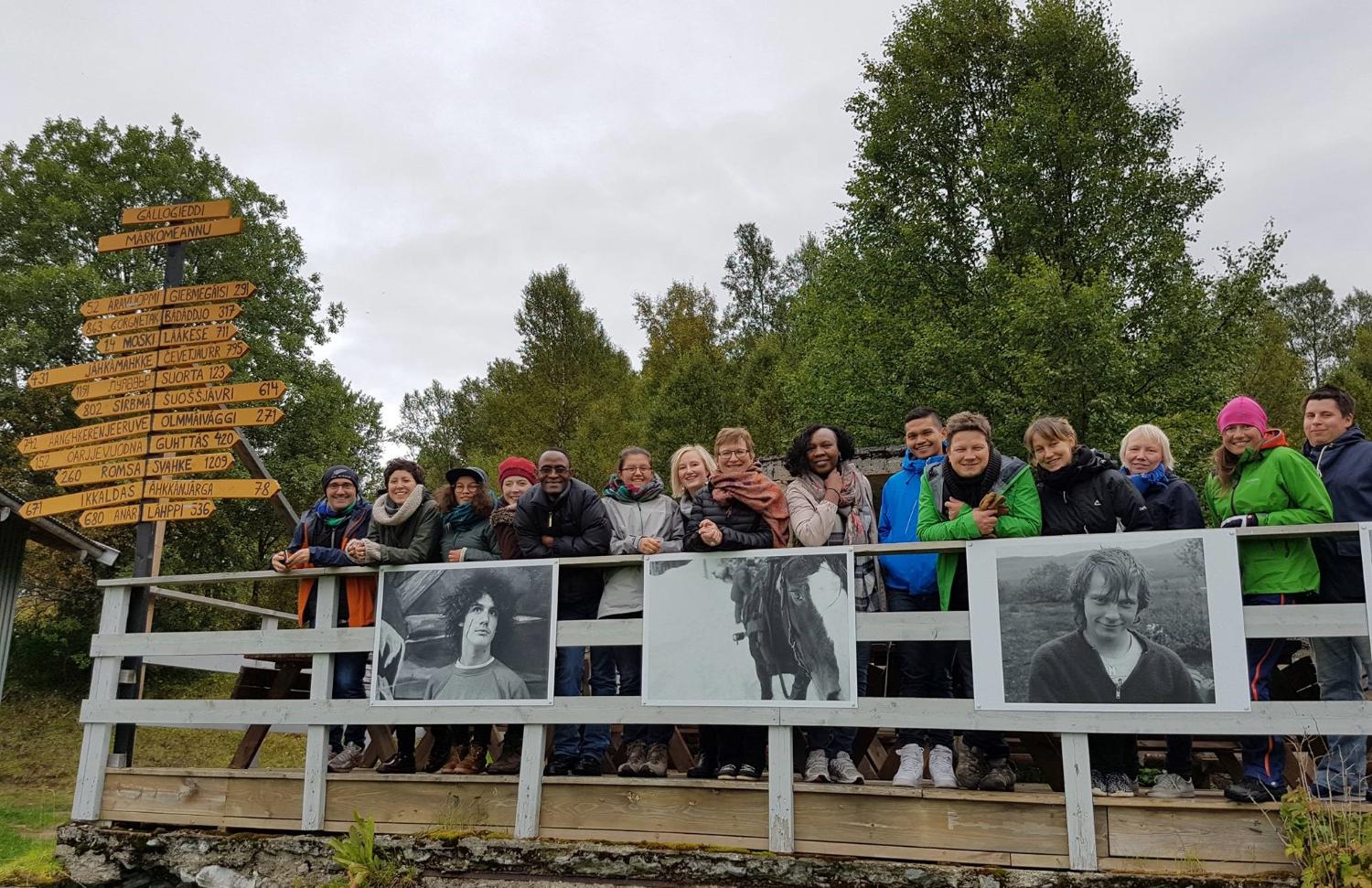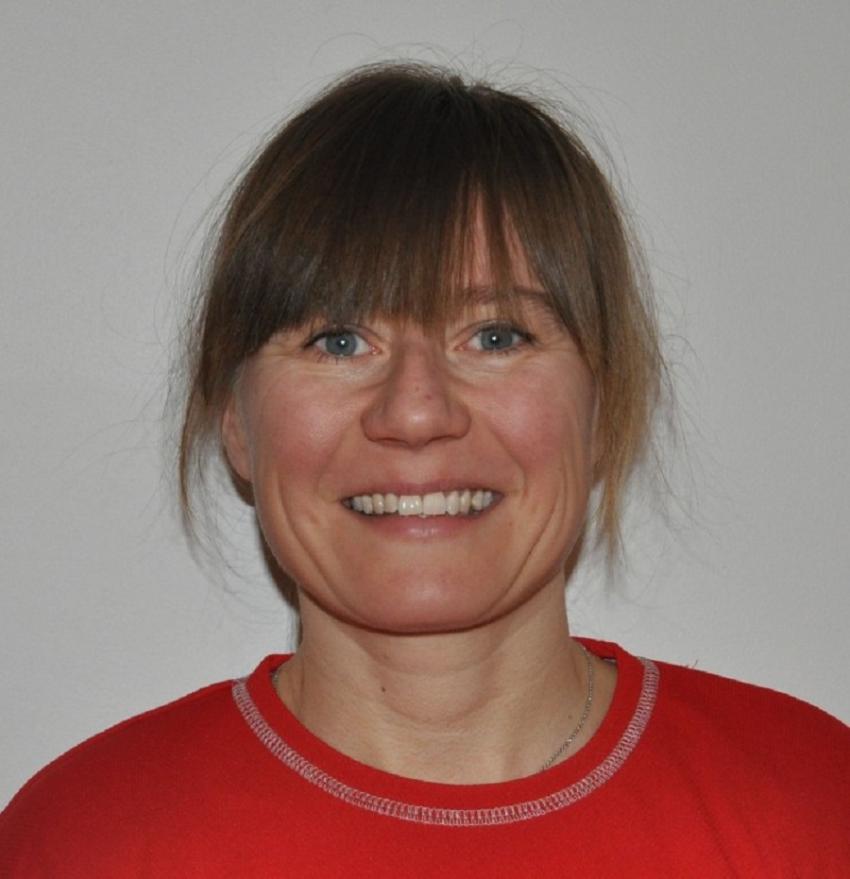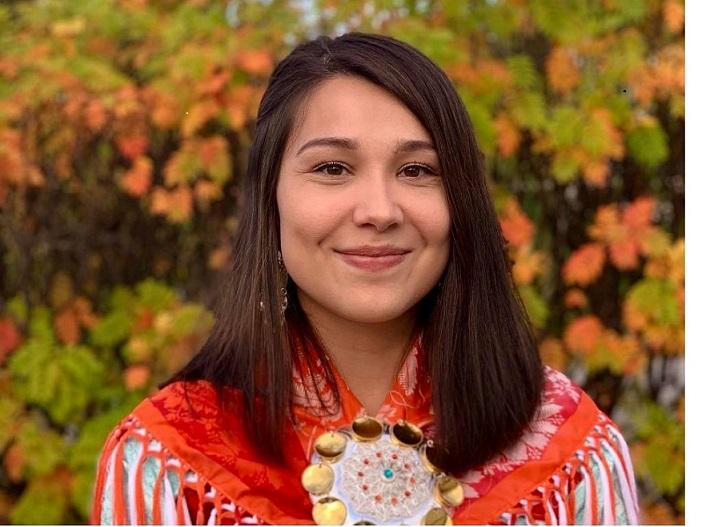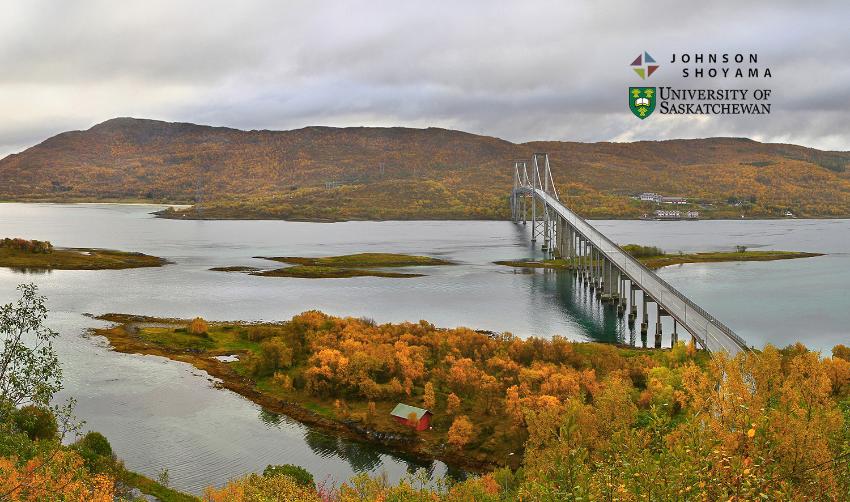Why do Indigenous peoples share historical and contemporary experiences across the globe, despite their diversity? How does colonisation and decolonisation illuminate both particularities and commonalities of Indigenous peoples’ relations to states and majority societies?
Our master’s programme in Indigenous Studies provides a multidisciplinary approach to understanding Indigenous issues. Designed to develop academic and practical skills, enhance critical thinking, and build knowledge, this program prepares students to fill an important role in an increasingly globalised world. We welcome students from both Indigenous and non-Indigenous backgrounds, creating an exciting cross-cultural teaching and learning environment.
This study programme requires compulsory attendance to the introductory meeting.Bachelor's degree (180 ECTS), or an equivalent qualification, with a minimum of 80 ECTS within social sciences, humanities, education or the social practice of law. Applicants must have a minimum grade average comparable to a Norwegian C (2,5) in the ECTS scale.
Specific academic requirements:
A special interest in Indigenous issues is a precondition. Experience from work related to Indigenous peoples and/ or studies will be an advantage.
Please note that recommendation letters are not required.
Applicants with education from non-Nordic countries must document English language proficiency. You will find more information of English language requirements on our admissions pages.
Admission capacity:
20 places
Applicants from Norway or Nordic countries:
Her finner du all informasjon knyttet til søking og opptak.
Applicants from outside the Nordic countries:
You will find more information about international admissions here
The programme aims to recruit both Sami and Nordic students as well as Indigenous and non-Indigenous students from other parts of the world. A mixed group of students will strengthen the comparative aspects of the programme, and will contribute to international network building. The admission of students from different countries and regions will be emphasized in order to ensure a varied student group. Ethnic background will also be relevant in this respect.
- Nordic applicants: 5058
- EU/EEA + Swiss applicants: 7160
- Non-EU/EEA applicants: 2031
Program description
The Centre for Sami Studies offers a two-year full-time master's programme in Indigenous Studies (MIS). The programme is multidisciplinary within social sciences and humanities, and rootet in research conducted at UiT regarding the Sami and other Indigenous peoples. The thematic focus of the programme is the historical and contemporary experiences that Indigenous peoples have faced across the globe, and the development of the international Indigenous movement.
During the two years of studies, students take five thematic courses focused on key issues in Indigenous studies, and one elective are designed to give a broad base, from which students may choose a relevant research topic for the master's thesis.
The thesis work is supervised by a faculty member from the Sami Centre and the other units. Topics are chosen in cooperation with the program coordinator. It is customary to conduct data collection for the master's thesis at the end of the second semester.
Learning outcomes
Students who have successfully completed the MIS programme, are expected to have achieved the following learning outcomes:
Knowledge
Advanced knowledge of:
- Indigenous issues, including similarities and differences based on the different cultural contexts;
- the concepts of Indigenous peoples as used in areas of research and politics on global and local levels, and the scholarly and political debate on these issues;
- different scholarly theories and methods in the field of Indigenous Studies, including the challenges posed by indigenous methodology;
- the history of the global Indigenous movement and the current situation of the Sami and other Indigenous peoples;
- the existing state of knowledge related to Indigenous research ethics and the responsibility of the researcher.
Skills
Capacity to:
- critically analyse the situation of Indigenous peoples based on the interdisciplinary approach to Indigenous studies;
- deal with challenges that culturally diverse societies and their institutions are facing;
- analyse existing and relevant theories from the humanities and social sciences and use these theories independently;
- find and use relevant research methods to produce the data for an independently designed project;
- carry out an independent, limited research project under supervision;
- compare the situation of indigenous peoples in different historical and contemporary contexts;
- Make oral presentations at seminars and other official settings.
General competence
Ability to:
- analyse relevant academic problems in the field of academic Indigenous research;
- analyse professional and research ethical challenges related to Indigenous issues;
- apply knowledge and skills on Indigenous issues in order to carry out advanced assignments and projects in similar areas;
- use the terminology of Indigenous studies and communicate extensively on their academic work both to specialists and to the general public;
- combine different scholarly approaches to produce new knowledge;
- contribute to new thinking and innovation processes regarding Indigenous peoples and minorities.
Job prospectives
The Master's programme in Indigenous Studies introduces students to Indigenous Studies as a distinctly multidisciplinary field. The objectives of the programme include:
- introducing students to the history and development of the global Indigenous movement;
- familiarizing students with different disciplinary perspectives on human and indigenous rights, colonialism, decolonisation, culture and ethnicity, marginalization, political recognition and empowerment, governance, resource management and environmental change;
- equipping students with skills and knowledge to critically analyse relations between local, regional, national and global levels, including the role of pan-national organizations such as the UN and ILO; and
- teaching students about interaction and unequal power relations between actors.
Possible propects
Our graduates thrive in work fields that require understanding of global and local Indigenous issues, international experiences as well as analytical thinking, communication, and project implementation skills. The Master’s programme prepares students for exciting careers in multiple academic, public and business environments. Job opportunities include:
- Research positions: conducting academic applied research into Indigenous issues;
- Policy: preparing and coordinating policy, advising and planning (UN, etc.)
- Implementation positions: serving as project manager or coordinator in local NGOs and other areas of the private sector
- Communication and media positions related to Indigenous issues
Academic Careers
The Master's programme provides an excellent foundation for pursuing a PhD in relevant fields, such as Political Science and Governance, Anthropology, Environment and Development Studies, Language, Cultural and Religious Studies, and Education, to name just a few. Many of our graduates were successful in attaining competitive PhD positions and research fellowships.
Professional Careers
As a graduate from the Master in Indigenous Studies, you would gain general conceptual, critical and evaluative skills which are required in many senior jobs in the government and public sectors, civil society organizations, project management and education institutions. The skills to analyze public policy, plans and development projects make our graduates highly qualified candidates for working both in the public and private sectors at all levels, providing institutions and organizations with knowledge, critical thinking and advice in a wide range of processes.
The international nature of the programme connects our students in a global network that helps them develop a global outlook and competence to make high-level critical comparisons of Indigenous realities on the ground. As a graduate from the Master in Indigenous Studies your in-depth analyses of Indigenous peoples own experiences locally, nationally and internationally could be of critical importance for Indigenous and marginalized communities worldwide. This expertise makes you qualified for work both with international and local stakeholders, contributing to frame, voice and disseminate their interests and concerns, and co-design suitable courses of action.
Degree Name
Master of Philosophy in Indigenous StudiesAccess to further studies
Upon successful completion of the degree programme, students may be qualified for admission to a PhD programme in a number of academic areas at universities in Norway, Scandinavia and internationally.
Study plan
Language of instruction
The language of instruction and syllabi is English.
Teaching and assessment
The organisation of teaching will depend on the character and the content of each course. More information about teaching and examination is specified in the description of each individual course.
Seminars in methodology, methods and thesis writing run parallel to the other courses throughout the studies. The courses in methodology and methods tie together the different courses and disciplinary approaches. This constitutes the basis both for the development of the students' individual research design and for the integration of Indigenous perspectives in research.
Every student will be assigned a thesis supervisor in the first year of the study. Supervision is given through seminars and individual tutorials.
Students can carry out fieldwork/data gathering abroad with basic financial support from the Centre for Sami Studies. If you are considering an exchange period, we recommend that the exchange is combined with fieldwork during the second and / or third semester (April-December) at a partner university.
The Master's programme in Indigenous Studies has bilateral exchange agreements with universities abroad where the students may take modules that will subsequently be approved as part of the degree. We recommend our students to use these agreements. There are certain reservations concerning what modules the partner university has to offer. UiT has several open agreements that also can be used by students in Indigenous Studies. Check student mobility at UiT. Information about exchange programmes will be given by contacting the Centre for Sami Studies.





